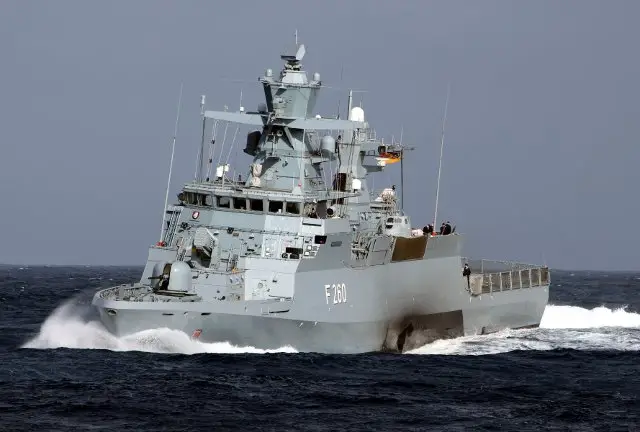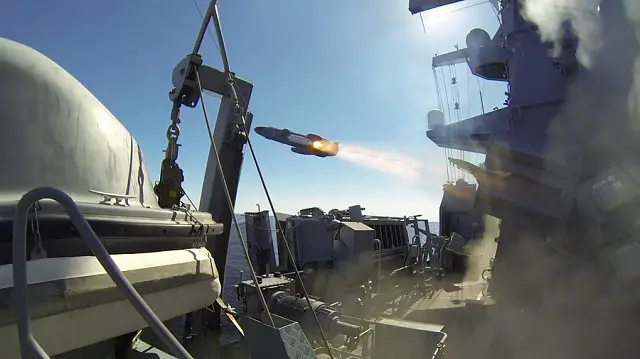Breaking news
German Navy K130 Corvettes Ready for Saab RBS-15 Mk3 Anti-Ship Missiles.
| 2016
| |
|||
| a | |||
Naval Defense Industry News - Germany, Sweden |
|||
German
Navy K130 Corvettes Ready for Saab RBS-15 Mk3 Anti-Ship Missiles |
|||
By Stelios Kanavakis and Xavier Vavasseur The German Navy (Marine) has authorized on 3 June 2016 the use of the surface-to-surface Saab RBS-15 Mk3 missiles aboard the Braunschweig class (K-130) corvette. This type of missiles will give the Marine the capability to engage land targets from the sea. |
|||
 German
Navy Braunschweig class corvettes (K130) German
Navy Braunschweig class corvettes (K130) |
|||
The
RBS-15 Mk3 was selected in 2004 through an international tender; with
the other two contenders being Kongsberg’s Naval Strike Missile
and Boeing’s Harpoon Block II missiles. However, following technical
delays and two failed fire-tests in 2013, the missiles were successfully
fire-tested in 2015. The German Navy is the second one, after the Polish, to induct this weapon system. The RBS-15 Mk3 has a range over 200 km, with improvements over its previous version in its mission computer, digital autopilot, INS/GPS navigation system, allowing it to follow multiple waypoints flight paths, its capability to discriminate targets and conduct manoeuvres, and other sectors. |
 An
RBS15 Mk3 is launched from German Navy Braunschweig class corvette “Magdeburg”
during operational test in 2015. Picture: Diehl An
RBS15 Mk3 is launched from German Navy Braunschweig class corvette “Magdeburg”
during operational test in 2015. Picture: Diehl |
|||
Due
to its high maneuverability, the long-range, all-weather capable, fire-and-forget
RBS15 Mk3 missile can track targets in low-level flight directly above
the water surface and fly around or over islands at distances up to and
far beyond 200km. It is extremely resistant to electronic countermeasures
and characterized by high robustness against air defence sites employing
guided and tube weapons, for instance, by unexpected evasive maneuvers
during terminal approach. The German Navy Braunschweig class corvettes (K130) were designed and built by the Class 130 Consortium led by Blohm + Voss. Five built ships have the primary task of surface surveillance, reconnaissance, surface target engagement, humanitarian missions, countering asymmetric threats and operating mainly in the littorals. Link to K130 Braunschweig Class Corvette technical datasheet |
|||


























